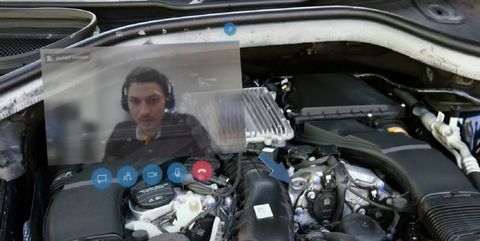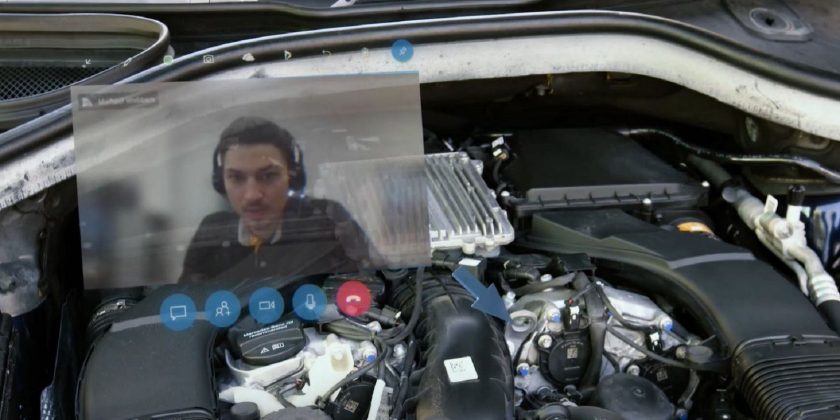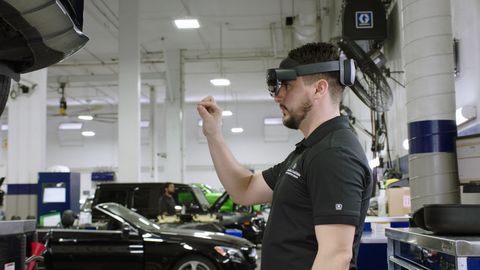
Mercedes-Benz calls it Virtual Remote Support. It’s a new system connecting local dealership technicians with Mercedes technical specialists across the U.S. in real time using virtual reality goggles and related technology. In literal terms, the VR goggles remotely show the technical specialist what the technician sees as the technician sees it and adds pertinent information into view, such as 3D images, documents, etc. Furthermore, the specialist can take the technicians augmented view and circle parts of the view, insert arrows, and highlight areas of focus.
The collaboration with Microsoft includes using its HoloLens 2 VR goggles and Dynamics 365 Remote Assist, a data-sharing system. Using these tools effectively replaces phone calls and emails with attachments. Instead of back and forth communication with often times incomplete information, problems are discussed and solved all in one go.
Christian Treiber, Vice President of Customer Service at Mercedes-Benz USA, put it like this, “Today’s vehicles feature more than 100 million lines of software code. Through our partnership with Microsoft, we have a new paradigm for technology support and communication that helps our dealers and technicians master the complexity of these vehicles while eliminating travel time and onsite visits. It’s like having an expert on your shoulder.”
Mercedes first tried a pilot program with just a baker’s dozen dealerships earlier this year. In August the program was deemed a success and was launched nationwide to Benz’s 383 U.S. dealerships. And the U.S. is the first market to give this program a try. Mercedes claims the benefits to the program include faster service turnaround, reduced time to diagnose complicated problems, reduce pandemic safety concerns and other issues as a result of reduced technical specialist travel.
My intuition says the real driver is less about pandemic safety and more about reducing costs to service and maintain Mercedes products. And Mercedes confirmed that fewer technical specialists will be needed overall and a larger number will be relocated to Jacksonville, Florida, a headquarters for the field, of sorts. Another benefit might come from improved consistency from dealership to dealership, especially those servicing smaller metropolitan areas.
The key part to all this is that cars themselves have transformed into rolling computer networks with wheels and seats. It’s only logical Mercedes searched out a solution to more efficiently keep them running. Just don’t be surprised to see VR goggles resting next to oil cans the next time you take your car for service.
Source: Read Full Article


